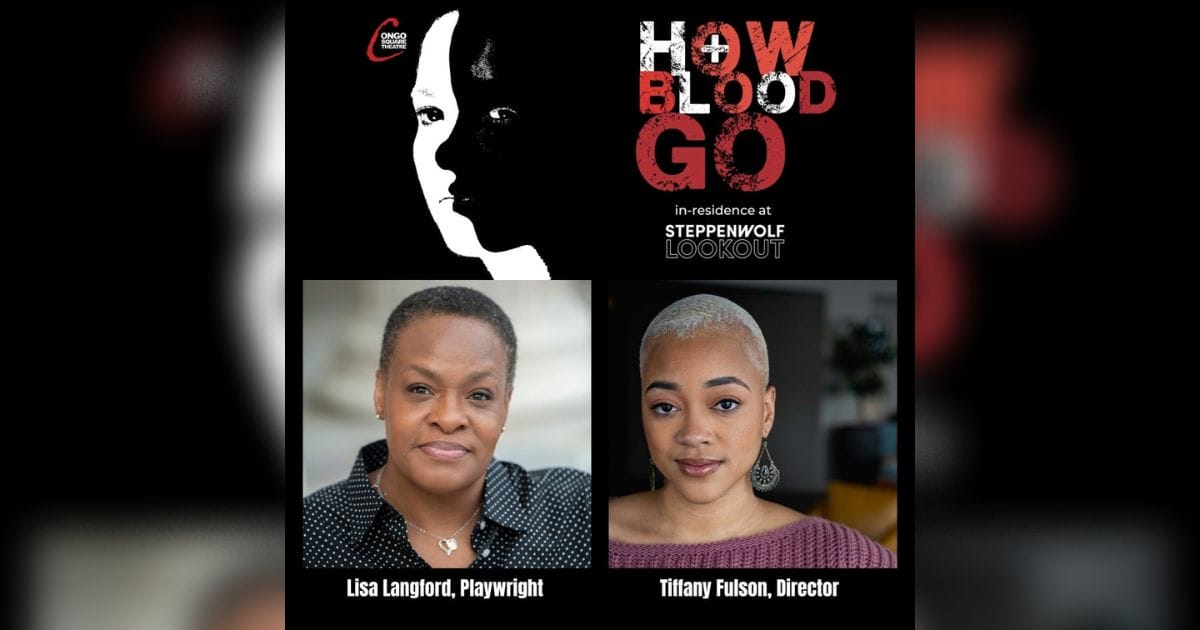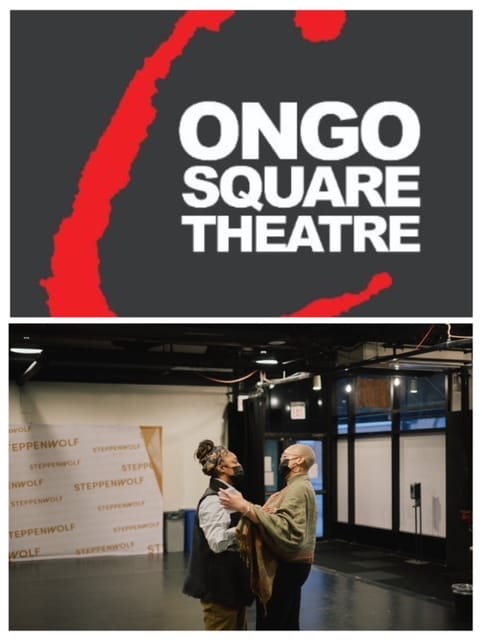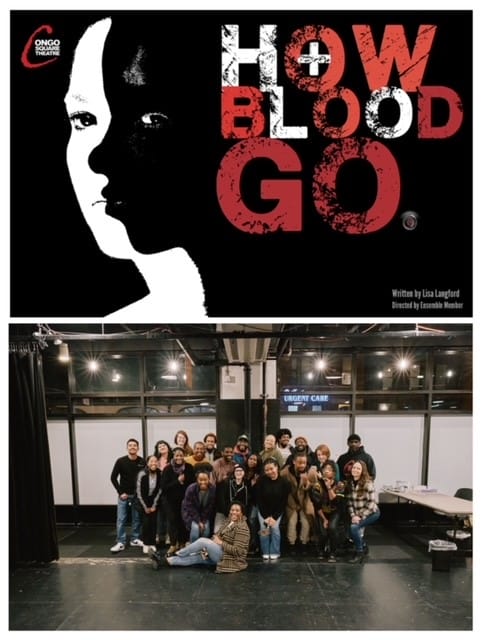“How Blood Go” is a wholly topical story of two family members who are subject to medical experiments without their consent, 50 years apart. Infused with Afrofuturism, the play weaves the present and past together to explore the strained relationship between the health care system and African Americans in this country.
Just when Quinntasia is ready to take her wellness program, Quinntessentials, to market, she learns that her healthy body is not the product of her hard work, but of a futuristic experimental device—activated without her consent—that makes her appear white to doctors and nurses.
She must decide if she’s willing to give up her Blackness to make her dream come true. Meanwhile, Bean and his brother, Ace, experience unethical medical treatment in the American South—the Tuskegee Syphilis Experiment (1930-1970).
“While there are universal themes, this is a very personal story: my grandfather’s uncle was a patient in the Tuskegee Syphilis Experiment. Though that was decades ago, Black lives are still placed at risk every day because of the medical establishment’s casual disregard for our health and our worth. I hope that audiences will take away that the past is right next to us, and we ignore its lessons at our own peril,” shared playwright Lisa Langford.
Langford’s play incorporates elements of Black history and culture. This fantastical work won Congo Square’s 2019 August Wilson New Play Initiative, among other accolades.
“This play is at the pulse of the national conversation about racial inequities in our health care systems and practices. We hope audiences are down to explore these issues with us through this potent and dynamic production,” added Ericka Ratcliff, Congo Square Theatre Artistic Director.
I was able to ask Langford further questions about “How Blood Go” as it relates to the Tuskegee Study. “I have an ancestor, Green Adair, who was patient 001 in the Tuskegee Syphilis Experiment. I had always known about Green; he was my maternal grandfather’s uncle. When I was in high school, our family received compensation from a class-action lawsuit filed on behalf of the men in the study,” she said. “I knew I wanted to write about him, but it wasn’t until I had a health crisis of my own and had to navigate a broken health care system that I found my way into writing about it.”
She mentioned that Quinntasia’s story was more difficult to write. “Some of that is because every day there are new and distressing examples of how the health care system disadvantages people of color, so I was constantly like, should I put this in, too?”
Regarding the subject matter of health care disparities, Langford added: “There is this big debate about how we navigate Black trauma in our storytelling. And at the same time, there is literally a movement to stop the study of Black history in this country. Let me say that again. There is a movement to stop the study of Black history in this country. That tells me that my history is powerful. It’s powerful because when it is told, it holds the perpetrators of anti-Blackness accountable, and they don’t like that.
“I think we should talk about Black history every day of the year. All of it. I feel like there should be as many movies about Civil Rights, slavery, and Jim Crow as there are westerns, WWII movies, and the like. There is nothing in Black history for Black people to be ashamed of. Not one thing. But we’ve been made to feel ashamed. That’s why I love the work that Bryan Stevenson does at the Equal Justice Initiative. We need to keep the truth of what was done to us alive and hold those systems and people accountable.”
Directed by Tiffany Fulson, the play stars “The Chi” actor Yolonda Ross, Congo Square ensemble member Ronald L. Connor and Jyreika Guest as Quinntasia.
NOTE: Congo Square Theatre will be hosting a series of “Celebration of Healing” events including panels, film screenings, and community conversations in partnership with organizations committed to addressing racial disparities in health care.
“How Blood Go” is in performances at Steppenwolf’s 1700 Theater, 1650 N. Halsted St., through April 23. Tickets are priced at $25 for preview performances (March 11-15) and $35 for all other performances, with senior and student discounts available. For more information, call 312-335-1650 or visit www.steppenwolf.org.

Elaine Hegwood Bowen, M.S.J., is the Entertainment Editor for the Chicago Crusader. She is a National Newspaper Publishers Association ‘Entertainment Writing’ award winner, contributor to “Rust Belt Chicago” and the author of “Old School Adventures from Englewood: South Side of Chicago.” For info, Old School Adventures from Englewood—South Side of Chicago (lulu.com) or email: [email protected].








